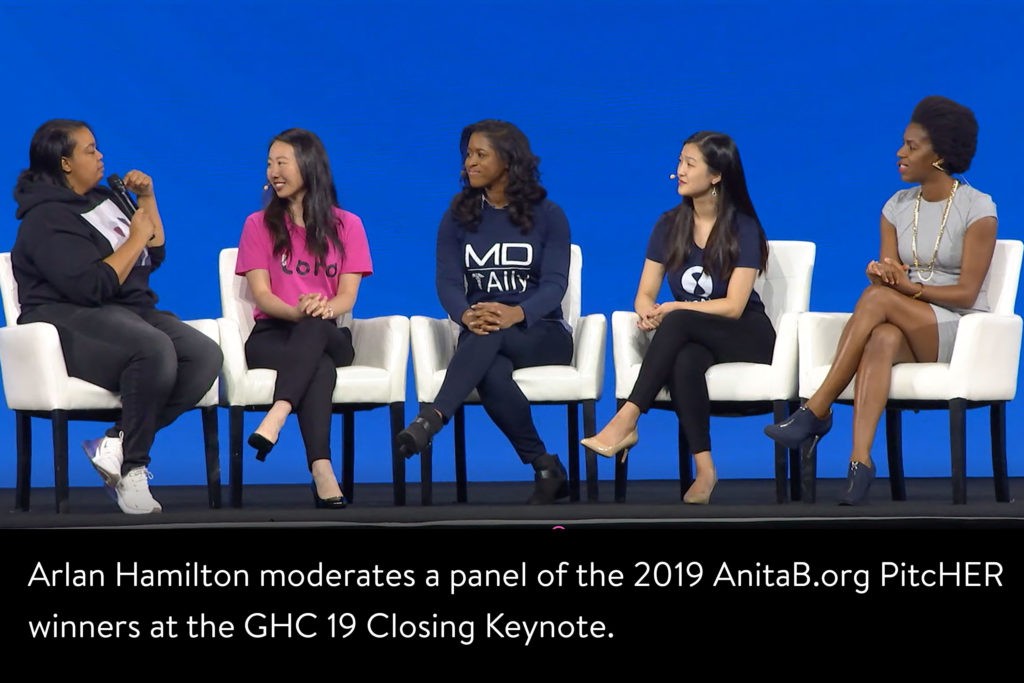Meet Jhillika Kumar, Student of Vision Abie Award Winner

Meet Jhillika Kumar, Student of Vision Abie Award Winner
The Student of Vision Abie Award recognizes and celebrates an undergraduate or graduate student who has a unique vision of how technology innovation can solve important problems, and how inspiring more women in technology enables meaningful innovation. This year’s winner is Georgia Tech student Jhillika Kumar.
Jhillika is a UX/UI designer, aspiring entrepreneur, and a third-year Georgia Tech student with a desire to improve the lives of the differently abled. She advocates to lift the barriers that exist within technology, design, and even policy, and empowers the largest underserved group by bringing attention to the importance of empathy and mutuality in design.
We spoke to Jhillika about what originally inspired her to enter the tech field and use technology to support those with autism.
How did you first become involved in technology? What excites you most about the tech field?
Growing up, I first witnessed the life-transforming power of technology when my parents brought home the iPad. We had no idea how much it would impact our lives, especially the life of my non-verbal, autistic brother who struggled to engage in nearly any meaningful activity independently. To our utter amazement, my brother was instantly swiping and tapping swiftly across Apple’s beautifully designed interface. He would jump to the comfort of his favorite music, calming and soothing his frayed senses. For the first time, he had control to engage with the (digital) world.
This led me to consider designing products and interfaces with accessibility in mind. I find it’s what excites me most. Imagine how many doors we can open if we combine technical capabilities with empathy for those who differ from us.
What has been the most rewarding aspect of the work that you do?
It’s rewarding watching this mission unfold every day as we get closer to creating an inclusive world where individuals with different abilities are respected and integrated into all aspects of society. According to the CDC, autism affects every 1 in 59 individuals and is becoming increasingly common. Almost everyone I have spoken to has a relative, friend, or acquaintance who has been affected by autism and understands the different world those with autism live in. It’s exciting to see people supporting our cause and aligning on a vision and future that we are creating together.
What was your biggest challenge in developing AxisAbility and how did you overcome it?
The biggest challenge in developing the business plan behind AxisAbility was to find the target population I wanted to serve and figure out how to do so based on the skill set I had. The next challenge was figuring out what phase of the project should come first. That’s when I had to go into “detective mode” — conducting my own research and interviewing people, meeting with parents, sitting in classrooms, and having video conference calls — to understand what problems certain populations face. Only when I spoke with families and self advocates did I fully understand the many problems that individuals diagnosed with autism must overcome every day; problems I couldn’t even fathom. I wondered if and how I could leverage technology to empower these individuals to reach their potential.
Our team eventually teamed up with Autism Self Advocacy of Atlanta, and we interviewed their self advocates who told us about their struggles. We gathered that a large systemic issue that often goes unaddressed is finding accommodating employment that aligns with the individual’s interests, strengths, capabilities, and sensory and emotional needs. That is when we created our platform, Mentra, our first project that aims to connect autistic individuals with the workplaces that enable them to thrive.
What is your vision for the future of technology?
My vision for the future of technology is to witness its power as an extension of human capability to serve those with disabilities, enabling them to thrive in classrooms, workspaces, policies, and societies, and enriching the quality of their lives overall. While assistive technologies and accessibility are being adopted by enterprises who want their products to be used by those with and without disabilities, there are still so many gaps in the system. When it comes to finding meaningful employment for individuals who are differently abled, the process is cumbersome due to several entry barriers. The only reason these barriers exist is because companies don’t think about how to incorporate a seemingly disconnected, neurodiverse population into their workforce. Our vision is to help over 500,000 autistic individuals who have “aged out” of government support programs and must enter the workforce in the next decade.
What is the best advice you ever received?
The best advice I received was this quote from Justine Musk:
“Shift your focus away from what you want (a billion dollars) and get deeply, intensely curious about what the world wants and needs. Ask yourself what you have the potential to offer that is so unique and compelling and helpful that no computer could replace you, no one could outsource you, no one could steal your product and make it better and then club you into oblivion (not literally). Then develop that potential. Choose one thing and become a master of it… this will give you a competitive advantage because you can move between worlds, speak both languages, connect the tribes, mash the elements to spark fresh creative insight until you wake up with the epiphany that changes your life.”
What advice do you have for other students who want to use technology to positively impact society?
Technology is changing the game. If we as leaders and innovators put our hearts and minds together, we can push individuals with disabilities beyond the limitations that have held these marginalized communities back until now. If we put our minds together, we can enable over 1 billion individuals with different abilities, and empower them to make a difference. Grace Hopper Celebration now exists, following multiple waves of inclusivity. Introducing neurodiverse communities into the workforce is going to be the next wave of evolution, as we adapt and change with this evolving dynamic equalized universe.
Meet Jhillika at GHC 19 during our Speaker’s Corner session, Thursday, October 3, 1—1:45 p.m., AnitaB.org booth.
See Jhilika’s session “Building on Your Vision & Impact” on Thursday, October 3, 2019, 2:15—3:15 p.m., OCCC W300.
Thank you to Quizlet, sponsor of the 2019 Student of Vision Abie Award.
Watch our GHC 19 videos of Jhillika Kumar.

